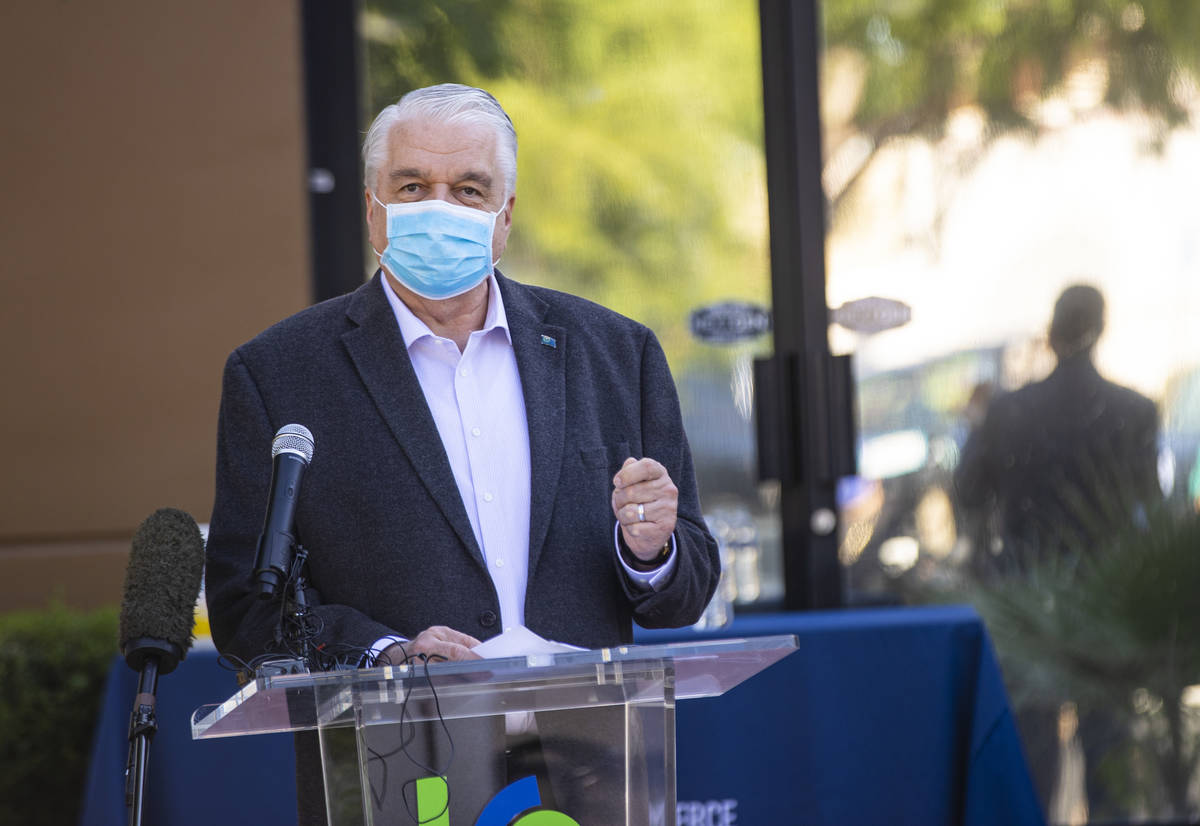VIDEO: Sisolak extends eviction moratorium in Nevada for 60 days
Gov. Steve Sisolak signed and issued an emergency directive that formalized the extension of the state’s eviction moratorium on Wednesday.
Nevada’s residential eviction moratorium is set to expire at the end of May with the directive, with the Centers for Disease Control announcing the extension of the federal moratorium on Monday.
According to a release from the governor’s office, the goal of Nevada’s extension is to allow for counties and courts to offer faster help in forms of eviction mediation or rental assistance when notices are filed.
“Our state is currently going through a large-scale transition period as we continue to navigate the ever-evolving pandemic and subsequent crises. Kids are back in school, we are in the process of transitioning mitigation authority to local governments, and people are heading back to their workplaces,” Sisolak said in a release. “The transition process for each of these areas has been strategic—and Nevada’s housing situation is no different. We must transition out of our eviction moratorium, but do so in a way that protects tenants and landlords to the greatest extent possible.”
The moratorium will not be extended again, Sisolak said in a press conference on Tuesday. The moratorium was set to expire at midnight on Tuesday.
Who is covered?
The moratorium will cover some tenants that are unable to pay their full rent due to circumstances related to the COVID-19 pandemic, which includes a substantial loss of income, significant loss of hours or wages, being laid off, or “extraordinary out-of-pocket medical expenses. Additionally, the tenant has to show that they would be homeless or in a shared living situation if evicted and has to have an annual income of $99,000 or less for the calender year of 2020 or expects to earn less than that in 2021, for single filers. For joint filers, the maximum is $198,000. Also, parties who were not required to report income to the IRS in 2019 qualify.
If a renter received an Economic Impact Payment via the CARES Act or a Recovery Act Rebate through the American Rescue Act Plan, they also qualify. Tenants must provide their landlord with a “Covered Person Declaration.” This form is available at https//therenterconnect.org
Stipulations also exist as far as what types of evictions qualify under the governor’s emergency directive.
According to information from the Nevada Health Response, “Evictions that are not covered are evictions based upon anything other than nonpayment of rent for a covered person who delivers a covered person’s declaration to their landlord. This includes evictions based upon breach of lease term or condition, waste, nuisance, damage to the property, violation of the controlled substances act, etc.”
Even with these protections in place, renters will still owe any unpaid rent. Depending on their lease terms, renters may also be liable for late fees as well. The directive only temporarily stops a renter from being evicted from the premises, though, as stated, tenants still need to go through the proper procedure.
















